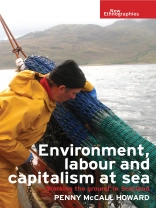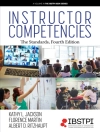This book explores how fishers make the sea productive through their labour, using technologies ranging from wooden boats to digital GPS plotters to create familiar places in a seemingly hostile environment. It shows how their lives are affected by capitalist forces in the markets they sell to, forces that shape even the relations between fishers on the same boat. Fishers frequently have to make impossible choices between safe seamanship and staying afloat economically, and the book describes the human impact of the high rate of deaths in the fishing industry.
The book makes a unique contribution to understanding human-environment relations, examining the places fishers create and name at sea, as well as technologies and navigation practices. It combines phenomenology and political economy to offer new approaches for analyses of human-environment relations and technologies.
İçerik tablosu
Introduction
Part I: A metabolism of labour and environment
1 ‘Working the ground’
2 From Wullie’s Peak to the Burma: naming places at sea
Part II: Techniques and technologies
3 Techniques to extend the body and its senses
4 From ‘where am I?’ to ‘where is that?’ Rethinking navigation
Part III: Capitalism and class
5 ‘You just can’t get a price’: the difference political economy makes
6 Structural violence in ecological systems
Conclusion: labour, class, environments and anthropology
Index
Yazar hakkında
Penny Mc Call Howard is National Research Officer for the Maritime Union of Australia and is an Honorary Associate in the Anthropology Department of the University of Sydney












